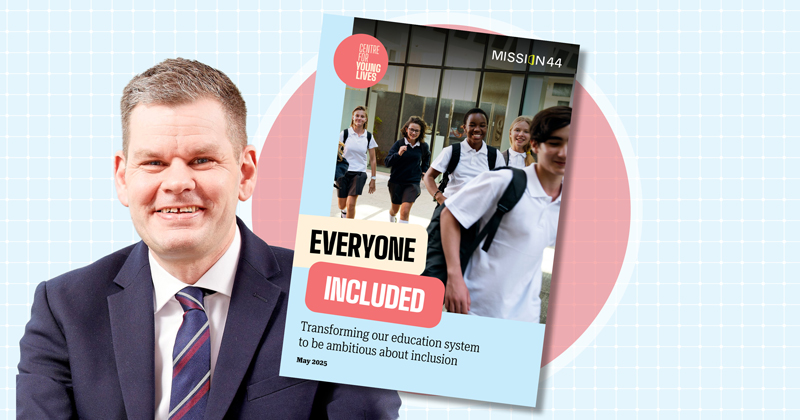Inclusive schools are those that take a “representative cohort” from their community, operate “culturally sensitive” behaviour policies and have low exclusions and detentions, according to an influential think tank.
The Centre for Young Lives has today published a definition of inclusion it said had been “stress-tested, redrafted, expanded and refined with the support and engagement of a network of over 130 local education leaders”.
The Labour government has said it wants to make mainstream schools more inclusive, and Ofsted’s proposed reforms will see schools judged on their inclusivity.
But the government is yet to precisely define what it considers inclusive practice in schools.
The CFYL, founded by former children’s commissioner and Labour peer Baroness Longfield, hopes government will adopt its definition.
Its report, authored by academy trust leader Jonny Uttley, states inclusive schools “take a representative cohort of pupils from their community, and achieve good outcomes for all these children”.
‘Reflecting the demographics of the local community’
The think tank said it expected data for inclusive schools to show a “staff and student population that broadly reflects the demographics of the local community”.
This should include the proportion of pupils with education, health and care plans.
However others have raised concerned before about such a metric, as some councils have poor track records in issuing plans timely.
The report said inclusive schools would also have “good academic outcomes for all students, measured by attainment gaps broken down by pupil characteristic”, as well as strong destination data for school leavers.
Such schools should also be able to demonstrate “low levels of lost learning” through things like exclusions and suspensions, detentions, internal exclusion and absence.
The report also sets out a “non-exhaustive list” of practices and policies “that we might expect to see an inclusive school implement”.
Be ‘culturally sensitive’ on behaviour
These include having a behaviour policy that is “culturally sensitive, sets clear boundaries underpinned by appropriate consequences for poor behaviour, while encouraging pupils to take ownership of their own actions”.
“At the same time, approaches to poor behaviour should recognise and respond to the contextual drivers of repeat poor behaviour and take a restorative approach.”
Asked what was meant-by “culturally-sensitive”, the think tank said the passage was “around recognising that racial bias may sometimes influence how some teachers might implement behaviour policies”.
Inclusive schools should also have “transparent and clear” admissions arrangements where student ability plays no part.
The government’s push on inclusion has prompted some to accuse ministers of pursuing it to the detriment of academic standards and strict behaviour policies.
‘Inclusion not divorced from high standards’
But the report went on to say it was “important also to define here how we do not see inclusion.
“We do not accept, as some imply, that inclusion is somehow soft or divorced from high standards, either academically or in terms of behaviour – it is not.
“We believe that every single young person deserves the very best in terms of outcomes, destinations, quality of teaching, school experience and extra-curricular opportunities.”
The report called for a government green paper on options for “wholesale reform of the school system to become meaningfully inclusive, including the accountability system, with inclusion at its centre”.
The DfE should also issue statutory guidance on inclusion, drawing on the report’s definition and principles, and extend its live attendance dashboard to include information on a school’s roll.
Return admissions duties to councils
RISE school improvement teams should have their remit extended to include monitoring and accountability of school roll data, and the DfE should review the right of academy trusts to be their own admissions authority, returning the duty to councils.
Training on inclusive practices should be mandatory as part of continuing professional development, and statutory guidance should be issued on managed moves. Councils should collect and publish data showing the inclusivity of local schools.
Uttley said the definition of inclusion in the report “is a starting point for a future where mainstream inclusion is a reality.
“Schools that follow this definition are those that take responsibility for the progress and wellbeing of all pupils, including, and especially, the most vulnerable or disadvantaged. This definition is not about being soft or divorced from high standards.”








As a teacher I am getting more and more upset at the behaviour approaches being recommended. They do not work.
Being a teacher from an Asian background in a white midlands school – I face racism on a daily basis – from being jeered at to being verbally abused. And ethnicity is not the only thing that gets your students going, it is anything that they disagree with. Our headteacher is a caring polite lady – white British origin, and she gets dismissed, walked away from…. We have to start being firm, and stop making excuses for poor behaviour.